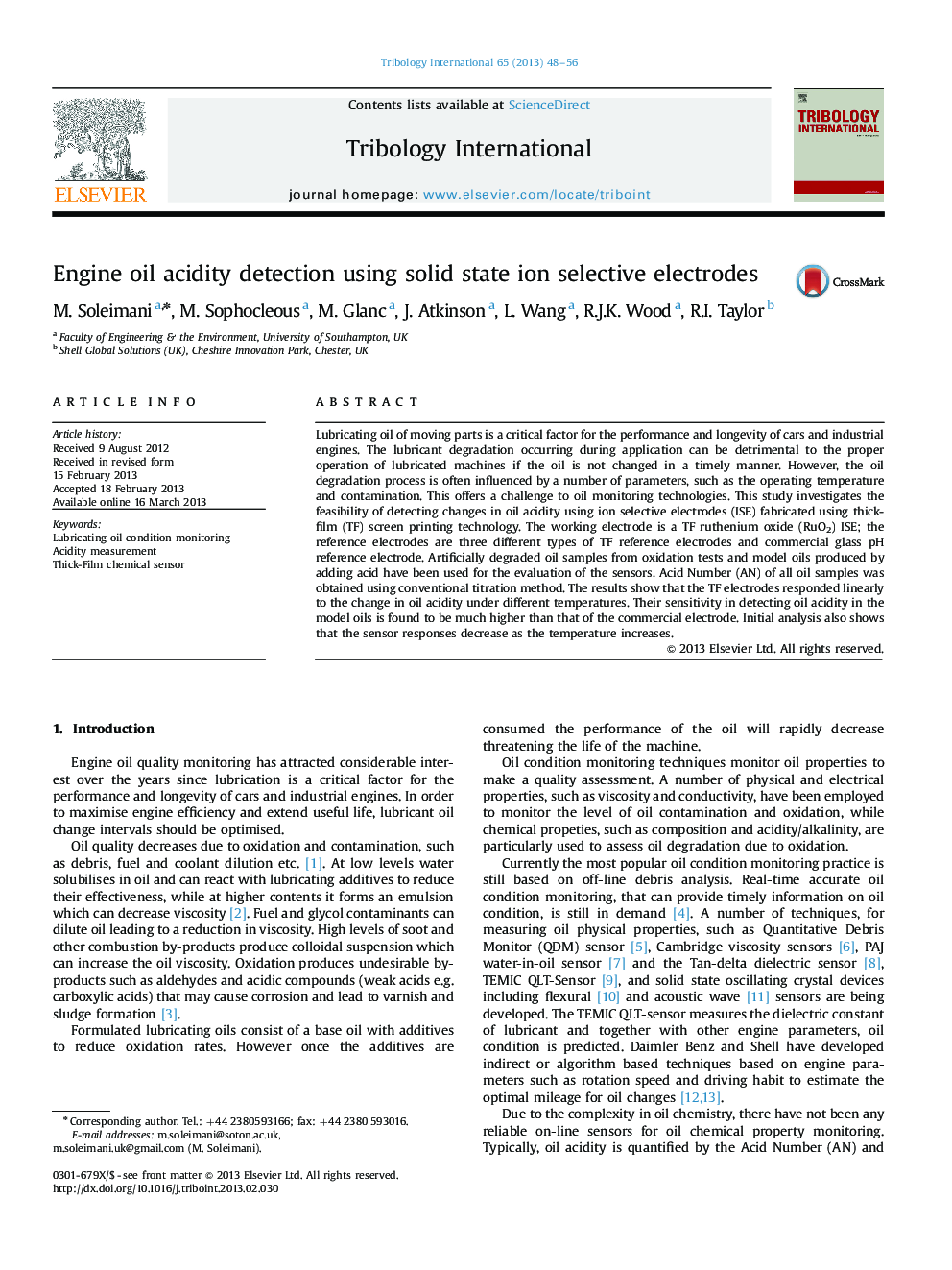| Article ID | Journal | Published Year | Pages | File Type |
|---|---|---|---|---|
| 614978 | Tribology International | 2013 | 9 Pages |
•The feasibility of oil acidity detection using screen printed thick-film (TF) electrodes has been studied.•The TF electrodes responded well to acid contents in both sets of oil samples (mostly linear relationship).•Temperature effects were also studied by testing the samples at different temperatures.•It was shown that higher temperatures decrease the sensor outputs.
Lubricating oil of moving parts is a critical factor for the performance and longevity of cars and industrial engines. The lubricant degradation occurring during application can be detrimental to the proper operation of lubricated machines if the oil is not changed in a timely manner. However, the oil degradation process is often influenced by a number of parameters, such as the operating temperature and contamination. This offers a challenge to oil monitoring technologies. This study investigates the feasibility of detecting changes in oil acidity using ion selective electrodes (ISE) fabricated using thick-film (TF) screen printing technology. The working electrode is a TF ruthenium oxide (RuO2) ISE; the reference electrodes are three different types of TF reference electrodes and commercial glass pH reference electrode. Artificially degraded oil samples from oxidation tests and model oils produced by adding acid have been used for the evaluation of the sensors. Acid Number (AN) of all oil samples was obtained using conventional titration method. The results show that the TF electrodes responded linearly to the change in oil acidity under different temperatures. Their sensitivity in detecting oil acidity in the model oils is found to be much higher than that of the commercial electrode. Initial analysis also shows that the sensor responses decrease as the temperature increases.
